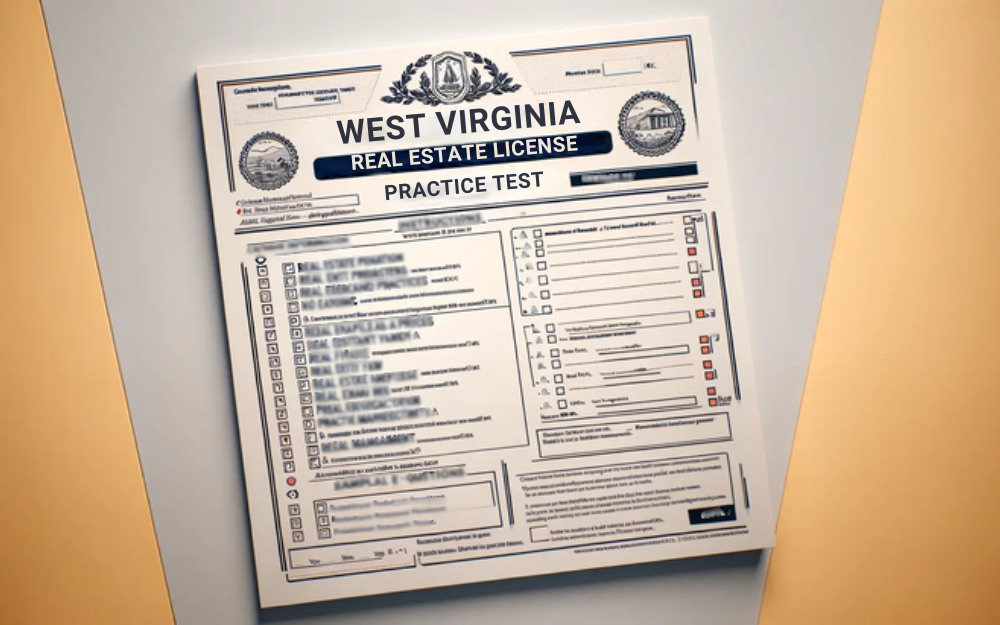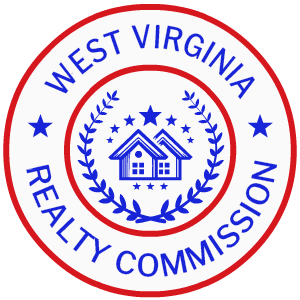
Determine your answer, then click the arrow to see the correct response.
What Is "Net Lease" in Real Estate?
A) A lease where the tenant pays a fixed rent and the landlord pays all property expenses
B) A lease where the tenant pays rent plus some or all property expenses, such as taxes, insurance, and maintenance
C) A lease where the rent amount varies based on the tenant’s revenue
D) A lease where the landlord pays for all utilities
Correct Answer: B) A lease where the tenant pays rent plus some or all property expenses, such as taxes, insurance, and maintenance
Explanation: In a net lease, the tenant agrees to pay a base rent plus some or all of the property expenses, including property taxes, insurance, and maintenance costs. This type of lease is common in commercial real estate.
What Is a "Deed In Lieu of Foreclosure"?
A) A deed that transfers property ownership to the lender to avoid foreclosure
B) A deed that provides a warranty to the buyer
C) A deed that guarantees the property is free of encumbrances
D) A deed that transfers property ownership upon death
Correct Answer: A) A deed that transfers property ownership to the lender to avoid foreclosure
Explanation: A deed in lieu of foreclosure is an arrangement where the homeowner voluntarily transfers the title of their property to the lender to avoid the foreclosure process. This can be beneficial for both parties, as it can be less costly and quicker than a formal foreclosure.
What Is "Gross Lease" in Commercial Real Estate?
A) A lease where the tenant pays a fixed rent and the landlord pays all property expenses
B) A lease where the tenant pays rent plus property taxes only
C) A lease where the tenant pays rent based on the gross sales of their business
D) A lease where the tenant pays for all property expenses including utilities
Correct Answer: A) A lease where the tenant pays a fixed rent and the landlord pays all property expenses
Explanation: In a gross lease, the tenant pays a fixed rent amount, while the landlord covers all property expenses such as taxes, insurance, and maintenance. This type of lease is often used in office buildings.
What Is "Fair Market Value" in Real Estate?
A) The highest price a property will bring in a competitive and open market
B) The original purchase price of a property
C) The assessed value determined by the tax authorities
D) The amount a property sells for at auction
Correct Answer: A) The highest price a property will bring in a competitive and open market
Explanation: Fair market value is the price at which a property would sell under normal conditions where both buyer and seller have reasonable knowledge of the relevant facts and are not under any compulsion to buy or sell.
What Is "Chattel" in Real Estate?
A) Real property that is used for business purposes
B) Personal property that is movable and not fixed to the land
C) A type of mortgage used for commercial properties
D) A deed that conveys ownership of land
Correct Answer: B) Personal property that is movable and not fixed to the land
Explanation: Chattel refers to personal property that is not affixed to or associated with the land. Examples include furniture, vehicles, and livestock.
Sarah, a Real Estate Agent in West Virginia, Fails To Disclose to a Buyer That the Property Has a Serious Foundation Issue Which She Was Aware Of. What Consequences Could Sarah Face Under West Virginia Law?
A) No consequences if the buyer does not discover the defect
B) The buyer can sue Sarah for damages
C) Sarah's license could be revoked or suspended by the West Virginia Real Estate Commission
D) Both B and C
Correct Answer: D) Both B and C
Explanation: Under West Virginia law, failing to disclose material facts about a property can result in legal action from the buyer and disciplinary action by the West Virginia Real Estate Commission, including suspension or revocation of the agent’s license (West Virginia Code §30-40-19.
John, a Homeowner in West Virginia, Decides To Sell His Property and Pays a Finder’s Fee to an Unlicensed Person Who Referred the Buyer to Him. What Legal Issues Could Arise From This Action?
A) No issues if the fee is less than $500
B) The unlicensed person could face fines
C) John could face fines or other penalties for paying an unlicensed person
D) Both B and C
Correct Answer: D) Both B and C
Explanation: Paying a finder’s fee to an unlicensed person is prohibited under West Virginia law, and both the payer and the recipient could face fines and other penalties (West Virginia Code §30-40-22).
What Is Required for a Nonresident To Obtain a Real Estate License in West Virginia?
A) Passing the West Virginia state portion of the licensing exam
B) Holding a real estate license in another state
C) Completing West Virginia’s pre-license education requirements
D) All of the above
Correct Answer: D) All of the above
Explanation: Nonresidents must meet several requirements to obtain a real estate license in West Virginia, including passing the state portion of the exam, holding a license in good standing in another state, and completing the required pre-license education (West Virginia Code §30-40-15).
A Real Estate Brokerage in West Virginia Keeps Inadequate Records of Their Trust Fund Account, Resulting in a Shortfall. What Consequences Could the Brokerage Face Under West Virginia Law?
A) A warning letter from the Real Estate Commission
B) Fines and possible suspension of the brokerage license
C) Requirement to take additional education courses
D) No consequences if the shortfall is corrected within 30 days
Correct Answer: B) Fines and possible suspension of the brokerage license
Explanation: Failure to maintain accurate records on the trust fund account can result in fines and suspension or revocation of the brokerage license (West Virginia Code §30-40-19).
An Investor Buys a Commercial Property in West Virginia for $1,500,000. The Property Generates a Monthly Rental Income of $12,000 and Has Annual Operating Expenses of $40,000. What Is the Property’s Annual Net Operating Income (NOI)?
A) $100,000
B) $104,000
C) $110,000
D) $120,000
Correct Answer: B) $104,000
Explanation: The annual rental income is $12,000 × 12 = $144,000. The annual net operating income (NOI) is calculated by subtracting the annual operating expenses from the annual rental income. NOI = $144,000 – $40,000 = $104,000.
